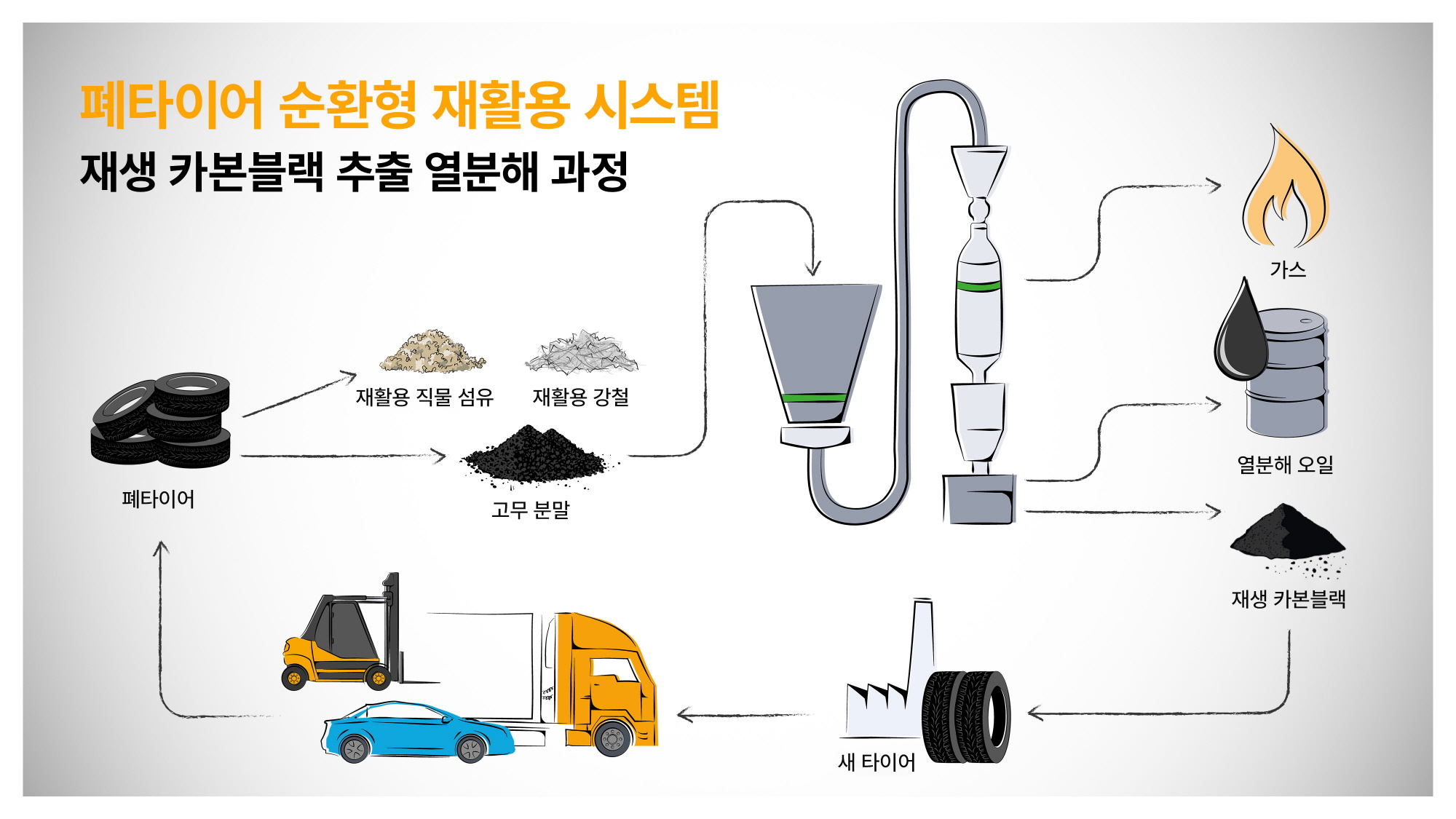
Continental has signed a 10-year long-term purchasing agreement with Pyrom Innovations, a specialist in waste tire pyrolysis technology, for high-quality recycled carbon black (rCB) made from waste tires. The two companies, which entered into their first partnership in 2022 to optimize waste tire recycling, aim to further expand their collaboration by using recycled carbon black in their passenger car tire series production in the future.
Carbon black is a key raw material required in the manufacturing of tires and industrial rubber products. By mixing carbon black into rubber compounds, the stability, strength, and durability of tires are enhanced, and the use of recycled carbon black can reduce the consumption of fossil raw materials and carbon dioxide emissions. Continental approaches its goal of using over 40% recycled and reused materials in its tire raw materials by 2030 by substituting approximately 15-20% of carbon black in its passenger car tires with recycled materials.
Jorge Almeida, head of sustainability for the Continental Tire Division, stated, “As the role of recycled raw materials in tire production continues to grow, Continental is transitioning the concept from ‘end-of-life’ tires to ‘end-of-use’ tires to enhance the circularity of our products.” He added, “We are building a process with Pyrom Innovations to recycle as many components and materials as possible so that the end of a tire’s life can represent a new starting point.”
Pascal Klein, CEO of Pyrom Innovations, commented, “Expanding our cooperation with Continental has significant meaning for us.” He explained, “Currently, all forklift tires produced at Continental’s Corbach plant in Germany utilize Pyrom Innovations’ recycled carbon black, and we are developing applications for Continental’s passenger car tire series production in the future.”
Meanwhile, as part of its sustainability strategy, Continental aims to produce all of its tire products using 100% sustainable materials by 2050. To this end, it is actively utilizing eco-friendly materials such as recycled rubber from waste tires, recycled steel, and polyester, while investing in advanced technologies and resources recycling processes that ensure optimal safety and quality.
Lee Sang-jin daedusj@autodiary.kr

